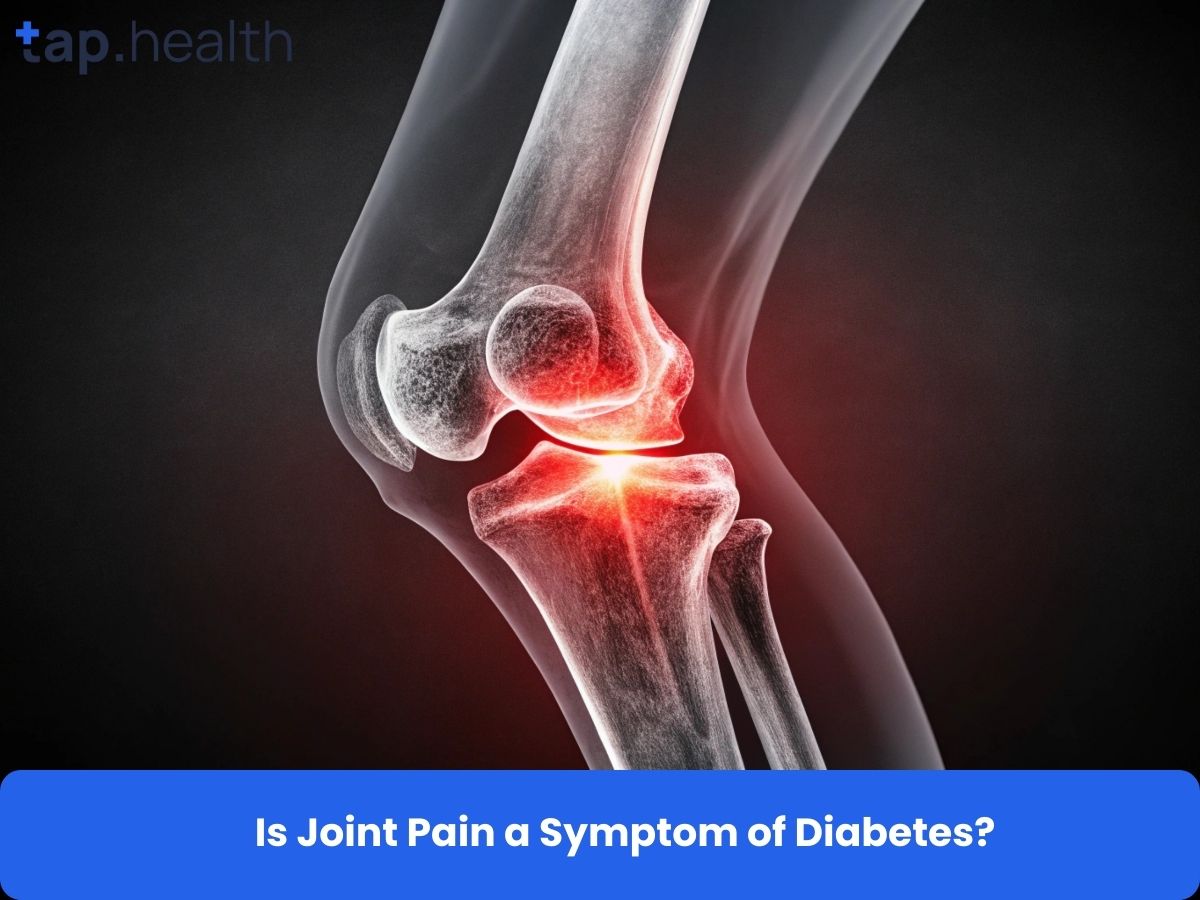If you have diabetes, you may have experienced strange cravings from time to time, one of the most unusual being the craving for ice. While some may see this as a simple habit or a passing fancy, ice cravings can actually be linked to underlying health conditions, including diabetes. But why do people with diabetes crave ice? Is it a harmless quirk or something to be concerned about?
In this blog post, we will explore the connection between ice cravings and diabetes, the reasons behind it, and how you can manage these cravings. Understanding this peculiar symptom can help you take better control of your diabetes and your overall well-being.
What Are Ice Cravings?
Before diving into the connection between ice cravings and diabetes, let’s first define what we mean by “ice cravings.”
What Are Ice Cravings?
Ice cravings refer to the urge to eat or chew ice—something many people do absentmindedly. For some, the craving can be intense and persistent, leading them to seek out ice cubes or shaved ice multiple times a day. This condition is known as pagophagia, which is a specific form of pica (the craving to eat non-food items).
For people with diabetes, these cravings might be more than just a quirky habit. They can indicate something more significant, such as low iron levels, blood sugar imbalances, or dehydration.
Why Do People with Diabetes Crave Ice?
People with diabetes often experience ice cravings due to a range of physiological and psychological factors. Let’s break down the main reasons why these cravings might occur.
1. Low Blood Sugar (Hypoglycemia)
When blood sugar levels drop too low, your body may signal hunger or cravings for certain substances. Ice cravings can sometimes be an unusual response to this drop in blood sugar. The act of chewing ice may help your body feel momentarily better, providing a temporary distraction from feelings of weakness or dizziness that accompany hypoglycemia.
-
Why it happens: The body craves something cold or refreshing when it’s in need of a quick fix to deal with a blood sugar drop.
2. Iron Deficiency (Anemia)
Pagophagia, the condition characterized by ice cravings, is commonly linked to iron deficiency or anemia. Anemia is a condition in which you don’t have enough healthy red blood cells to carry oxygen to your body’s tissues, leading to fatigue, weakness, and other symptoms.
-
Why it happens: People with diabetes are more prone to developing anemia due to factors like kidney disease, which is common in diabetes. The craving for ice could be the body’s way of trying to cope with the sensation of low oxygen in the blood.
3. Dehydration
People with diabetes are more prone to dehydration due to increased urination, especially if their blood sugar levels are not well controlled. Dehydration can cause a variety of symptoms, including dry mouth, fatigue, and increased cravings for ice, which can help hydrate the body temporarily.
-
Why it happens: When you’re dehydrated, your body seeks a quick fix to restore fluids. Ice may seem like an easy and refreshing way to hydrate, even if it’s not a long-term solution.
4. Stress and Anxiety
Living with diabetes can sometimes lead to heightened stress or anxiety. Stress is known to increase certain cravings, especially for substances like ice. Some people may chew ice as a way to cope with these feelings, seeking relief or a calming sensation.
-
Why it happens: The crunching of ice may serve as a physical outlet for stress, or the coldness may have a temporary soothing effect on the body.
5. Blood Sugar Imbalances
Both high and low blood sugar levels can trigger cravings for ice. When blood sugar levels are imbalanced, your body might crave things that provide an immediate sensation of relief or comfort.
-
Why it happens: Extreme blood sugar fluctuations can mess with your body’s normal cravings and hunger signals, making you more likely to reach for ice to soothe discomfort.
How Can You Manage Ice Cravings with Diabetes?
While ice cravings might seem harmless, it’s important to address the underlying causes to ensure you’re managing your diabetes effectively. Let’s explore some ways to manage these cravings.
1. Maintain Stable Blood Sugar Levels
The most effective way to manage ice cravings is by keeping your blood sugar levels in check. Monitoring your blood sugar regularly and making adjustments to your diet, exercise routine, or medications can help prevent spikes and drops in blood sugar levels, reducing the likelihood of craving ice.
-
Tip: Keep your blood sugar levels within your target range by working closely with your healthcare provider. A balanced diet, regular physical activity, and consistent medication are key.
2. Stay Hydrated
Dehydration is a major factor behind ice cravings. Drink plenty of water throughout the day, especially if you are experiencing high blood sugar or increased urination. Keeping your body hydrated can help reduce the need to chew on ice as a temporary solution.
-
Tip: Aim for at least 8 glasses (64 ounces) of water per day. You can also include other hydrating beverages like herbal teas or electrolyte drinks if needed.
3. Address Iron Deficiency
If you suspect that your ice cravings are linked to an iron deficiency (anemia), it’s essential to address the root cause. Talk to your healthcare provider about getting a blood test to check your iron levels. If you are diagnosed with anemia, you may be advised to increase your iron intake through diet or supplements.
-
Tip: Include iron-rich foods like leafy greens, beans, lentils, and lean meats in your diet. Vitamin C can also help your body absorb iron, so pairing these foods with citrus fruits or bell peppers can be beneficial.
4. Manage Stress
If stress or anxiety is contributing to your ice cravings, consider ways to reduce your stress levels. Regular physical activity, deep breathing exercises, mindfulness, or talking to a therapist can help manage stress and anxiety.
-
Tip: Yoga, meditation, or even a relaxing walk outside can provide significant stress relief, which may reduce your cravings for ice.
5. Speak with a Healthcare Provider
If your ice cravings persist despite trying to manage blood sugar levels, hydration, iron levels, and stress, it’s essential to talk to your healthcare provider. Persistent ice cravings can sometimes indicate other underlying issues, such as poor diabetes management or nutrient deficiencies.
-
Tip: Regular check-ups and open conversations with your healthcare team can help ensure that any underlying health issues are addressed.
Real-Life Scenario
A 45-year-old woman with type 2 diabetes noticed she was constantly chewing ice, especially after meals. At first, she thought it was just a habit. Later, blood tests showed she had iron-deficiency anemia, which is common in people with long-term diabetes due to poor absorption of nutrients. Once treated, her ice cravings reduced significantly.
Expert Contribution
Health experts explain that persistent ice cravings are not directly caused by diabetes, but they can be a warning sign of related complications. According to endocrinologists and dietitians:
-
Ice cravings may point to iron-deficiency anemia, which is more common in diabetics.
-
Constant chewing can wear down teeth and gums, increasing dental problems (already a risk in diabetes).
-
Cravings could be a sign of stress or dehydration, both of which need attention in blood sugar management.
Recommendations Grounded in Proven Research and Facts
-
Get tested: If you have diabetes and unusual ice cravings, ask your doctor to check for iron deficiency or anemia.
-
Improve diet: Include iron-rich foods such as spinach, beans, lentils, chicken, and fortified cereals. Pair them with vitamin C–rich foods (like oranges) to help absorption.
-
Stay hydrated: Sometimes cravings come from dehydration. Drinking enough water helps regulate both cravings and blood sugar.
-
Seek dental care: Protect your teeth by reducing frequent ice chewing.
-
Medical advice is key: Don’t ignore persistent cravings—addressing the root cause can prevent future complications.
FAQ About Ice Cravings and Diabetes
Are ice cravings normal for people with diabetes?
While ice cravings are not uncommon, they are not necessarily a normal or healthy symptom of diabetes. Cravings for ice may be a sign of blood sugar imbalances, dehydration, or iron deficiency, all of which require attention and management.
Can ice cravings be a sign of a serious problem with my diabetes?
Ice cravings could indicate that your blood sugar levels are unstable, or you may have an underlying issue like dehydration or iron deficiency. However, if ice cravings are persistent and linked to other symptoms, it’s important to consult with a healthcare provider to rule out any serious conditions.
Can ice cravings help lower blood sugar?
Chewing ice does not lower blood sugar and should not be relied upon to manage diabetes. It may provide temporary relief for some symptoms of low blood sugar, but the best way to manage blood sugar is through proper diet, exercise, and medication.
How can I tell if my ice cravings are related to diabetes or another condition?
If you have diabetes and are experiencing ice cravings, it could be related to blood sugar fluctuations, dehydration, or iron deficiency. If you’re unsure whether your cravings are linked to diabetes or another condition, it’s best to consult a healthcare professional for proper diagnosis and treatment.
Is it okay to eat ice if I have diabetes?
While eating ice in moderation isn’t harmful, it’s important to address the root causes of your cravings. If you’re relying on ice to cope with blood sugar fluctuations, dehydration, or stress, it’s better to address those underlying issues rather than using ice as a temporary fix.
Why do I crave ice all the time?
Craving ice all the time — also known as pagophagia — is often linked to an underlying health issue, most commonly iron deficiency anemia. When your body lacks iron, it can trigger unusual cravings like chewing ice.
Some people also chew ice due to stress, boredom, or habit, but if your ice craving is constant and strong, it’s best to get a blood test to check your iron levels. Treating the deficiency usually helps the craving go away.
How to replace ice chewing?
If you’re trying to stop chewing ice, you can replace it with healthier or safer alternatives that protect your teeth:
-
Chew crushed ice or ice chips instead of hard cubes.
-
Suck on cold fruits like frozen grapes or berries.
-
Sip cold water with lemon or mint to stay refreshed.
-
Keep sugar-free gum or mints handy to satisfy the oral habit.
The key is to address the underlying cause — if your craving is due to anemia or stress, treating that root issue is the most effective solution.
Do diabetics crave ice water?
Some people with diabetes may find themselves drinking or craving ice water frequently. This is often because high blood sugar levels cause excessive thirst (polydipsia), which can make cold water or ice feel extra refreshing.
However, craving ice water itself isn’t directly caused by diabetes — it’s usually a response to dehydration from elevated glucose levels.
If you constantly feel thirsty or crave ice-cold water, it’s a good idea to check your blood sugar levels and talk to your doctor.
Conclusion: Understanding Ice Cravings and Diabetes
Ice cravings are a curious phenomenon that can be linked to a variety of causes, especially in people with diabetes. Whether it’s due to low blood sugar, iron deficiency, dehydration, or stress, these cravings should be taken seriously. By managing blood sugar levels, staying hydrated, addressing nutritional deficiencies, and reducing stress, you can minimize the frequency of these cravings and support better diabetes management. If your cravings persist, it’s important to consult with a healthcare provider to rule out any underlying issues.
By understanding the connection between ice cravings and diabetes, you’ll be better equipped to make informed decisions about your health and well-being.
References
- A Practical Guide to Integrated Type 2 Diabetes Care: https://www.hse.ie/eng/services/list/2/primarycare/east-coast-diabetes-service/management-of-type-2-diabetes/diabetes-and-pregnancy/icgp-guide-to-integrated-type-2.pdf
- What is Diabetes: https://www.medschool.lsuhsc.edu/genetics/docs/DIABETES.pdf



